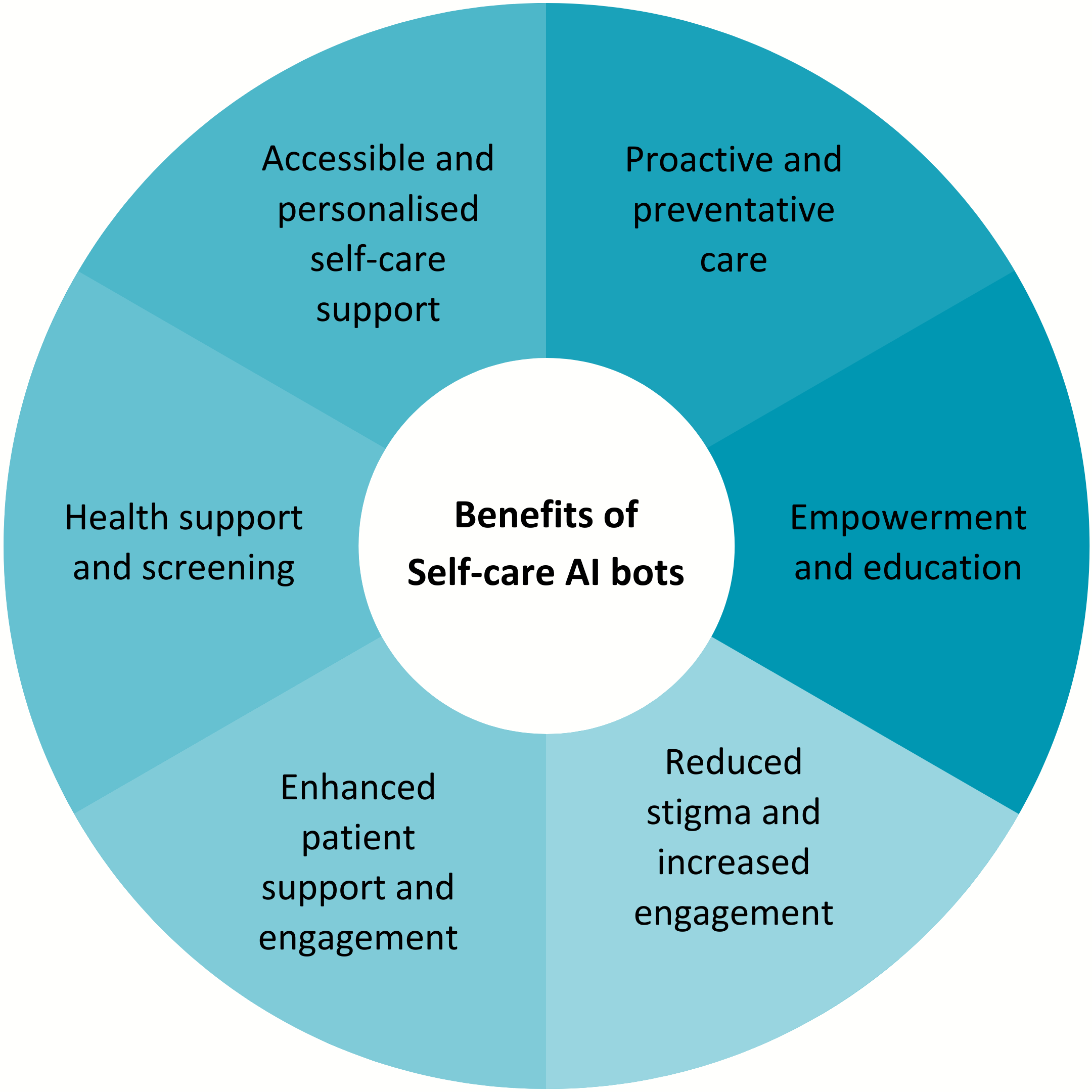When someone says chatbot, the first thing that comes to mind is performing rudimentary tasks like booking a ticket or creating a service request, but with the advancements in AI, chatbots have become more intelligent and reliable. Like every other domain, healthcare is also adapting intelligent chatbots.
In our hectic lives, we often forget about our physical and mental well-being. This is where next-generation AI virtual self-care bots come in, offering a revolutionary approach to self-care that is accessible, personalized, and addresses our complete well-being.
Rapid developments in AI are revolutionising self-care chatbots in several exciting ways:
- Natural Language Processing (NLP): Because of advances in NLP that can grasp the complexities of human language, such as sentiment, context, and intent, chatbots can now provide natural and meaningful conversations.
- Machine Learning (ML): ML algorithms can give users personalised self-care by learning and adapting over time, adjusting their replies and recommendations to specific requirements and preferences.
- Emotional Intelligence (EI): AI can now recognise and respond to emotions, allowing chatbots to provide sympathetic support and guidance. This is especially advantageous for individuals who are coping with health issues or emotional troubles.
- Multimodal Interaction: Chatbots are no longer limited to text-based communication. They can now utilize voice, video, and even biofeedback sensors to create a more engaging and interactive experience. This can make self-care more immersive and personalised.
- Virtual Reality (VR) and Augmented Reality (AR): The integration of VR and AR creates immersive environments for therapeutic interventions and visualisation techniques. This can enhance the effectiveness of self-care practices and provide a safe space for exposure therapy or relaxation exercises.
- Accessibility and Affordability: AI chatbots offer accessible and affordable self-care options, especially for individuals facing geographical or financial constraints to traditional services. They can democratise access to mental and physical health support, promoting overall well-being.
Benefits of Self-Care AI Bots

- Accessible and personalised self-care support: Available 24/7, NextGen AI chatbots offer immediate and confidential support for various mental and physical well-being needs, providing a safe space to express emotions, track progress, and receive personalised guidance. This accessibility is particularly beneficial for individuals facing geographical, financial, or time constraints to traditional therapist or specialist support.
- Proactive and preventative care: AI chatbots can monitor user data and identify potential health risks or emotional disturbances before they escalate. This can lead to early intervention and preventative measures, promoting overall well-being and potentially reducing the need for more intensive healthcare interventions later.
- Empowerment and education: Engaging and interactive interactions with AI chatbots can educate users about various health topics, empower them to make informed decisions about their well-being, and guide them in developing healthy habits and coping mechanisms. This active participation fosters a sense of control and ownership over one’s health.
- Reduced stigma and increased engagement: The non-judgmental and confidential nature of AI chatbots can reduce the stigma associated with mental health concerns, encouraging individuals to seek help proactively and engage in self-care practices more readily.
- Enhanced patient support and engagement: AI chatbots can act as virtual assistants, handling routine inquiries, providing basic information, and scheduling appointments, freeing up the time of healthcare professionals for more complex patient interactions. This leads to improved efficiency and enhanced patient engagement.
- Health support and screening: AI chatbots can first conduct preliminary screenings to identify the severity of the health issues. It helps practitioners to focus on the patients who need specialised care.
Challenges and Considerations
While AI self-care bots help us in different ways, there are also some challenges and considerations to keep in mind:
- Ethical considerations: Data privacy, potential bias in algorithms, and the limitations of AI in replacing human expertise need careful consideration and responsible implementation.
- Interoperability and data sharing: Seamless integration with existing healthcare systems and secure data-sharing protocols are essential for effective collaboration between AI chatbots and healthcare professionals.
- Human touch remains vital: AI chatbots are valuable tools, but they cannot replace the personalised attention, empathy, and expertise of healthcare professionals. They should be used as complementary tools to enhance human interaction and care, not replace it.
AI supremacy in the healthcare domain will be thrilling to witness in the coming days, and self-care AI bots will become a companion to everyone on their road towards holistic well-being.











